all of the selves we Have ever been
 “When the famous scholar (Matthew Henry) was accosted by thieves and robbed of his purse, he wrote in his diary: ‘Let me be thankful first, because I was never robbed before; second, because, although they took my purse, they did not take my life; third, although they took my all, it was not much; and fourthly, because it was I who was robbed, and not I who robbed.’” Live Loved: Experiencing God’s Presence in Everyday Life - Max Lucado Be good. Because it matters. Happy Independence Day! May there be many more.
0 Comments
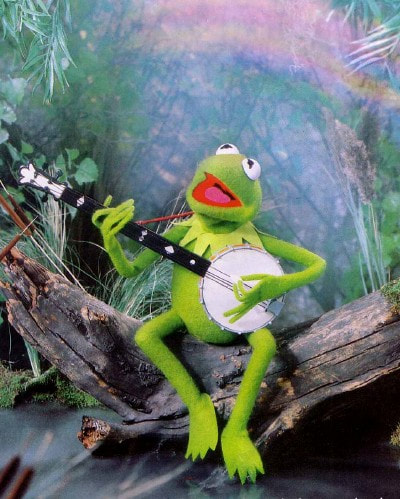 A strong southern breeze blew the blossoms off a row of young flowering trees. For a moment the petals swirled on the air like snowflakes and then lightly touched the ground. Scooting across the parking lot they came to rest along a curb forming a narrow stream of pink and white velvet. This little tributary of wonder was so breathtaking that I was compelled to stop and kneel on its asphalt shore. Gently, I scooped the petals into my hands. I felt their delicate softness as I brought my cupped hands to my nose. Breathing in their subtle fragrance, I satisfied a thirst I didn’t know I had. Ah! How the earth nourishes us in unexpected ways. On April 8th we here in central Ohio were in the path of the solar eclipse. For months the anticipation built. Schools closed for the day, people traveled hundreds of miles to get the best view. Even hospital workers left their duty stations and flowed out into parking lots to get a glimpse of this miraculous once-in-a-lifetime occurrence. As I sat poised at my window feeling the stillness and the darkness slowly permeate the peak of day, the voice of Kermit the Frog came to mind: What’s so amazing that keeps us stargazing? What do we think we might see? Maybe we are all wannabe believers, if not in miracles, then in magic. Mother Nature provides us with so much enchantment, and she does so while staying one step ahead of the scientists, perhaps to bedevil the calculations and the hypotheses, to continue to engage us, mesmerize us, and humble us. Moses once challenged God: “Show us your glory!” Old and weary, fearing an uprising from his followers, uncertain of the future or where they were going, Moses went into the mountains to have a word with God. Moses did not say, “Show us the money.” He said, “Show us your glory.” Surely, Moses was at a time in his life when he needed some encouragement, but I wonder if God was disappointed by the request. Every day glory surrounded the Israelites. The sea parted. Manna appeared on the ground for breakfast, quail wandered into the campground for dinner. Were the Israelites a bit like us? Too tired? Too preoccupied? Too self-focused? Too fearful? Fatigue and fear have a way of blinding us and dulling our senses. Perhaps for Earth Day 2024 our prayer should not be “show us your glory,” but help us to see it. Remove the blinding glare of narcissism and outrage, the pains of fear and discouragement, and help us to marvel at all the wonders that are free and available to us all. Help us to remember that we, too, are part of nature, another marvel of creation. Help us to experience the things we can believe in, even if fleeting. Remind us of wonder and possibility, of goodness, of things that are pure and without pretense. Help us to see the unseeable. Even though the solar eclipse has passed, help us to remember that the view is thick with majesty if we seek it just as earnestly. On Earth Day 2024, let us crack open the mundane everydayness of our lives, and stop watching bad news on our phones and TVs. Let’s get outside. No matter how discouraged we may be with the world, with life, nature can still surprise and delight us. The Earth is waiting. There is a living ecosystem beneath the sidewalk, butterflies are emerging from the bushes, buds are bursting with flower and fragrance, stars are streaking across the night sky, birds are singing…There is so much to believe in. Monday, April 22, is Earth Day. Meet me beneath the sky that we share, in the light and the warmth of the bright sun that spends itself for all of us. See you outside! 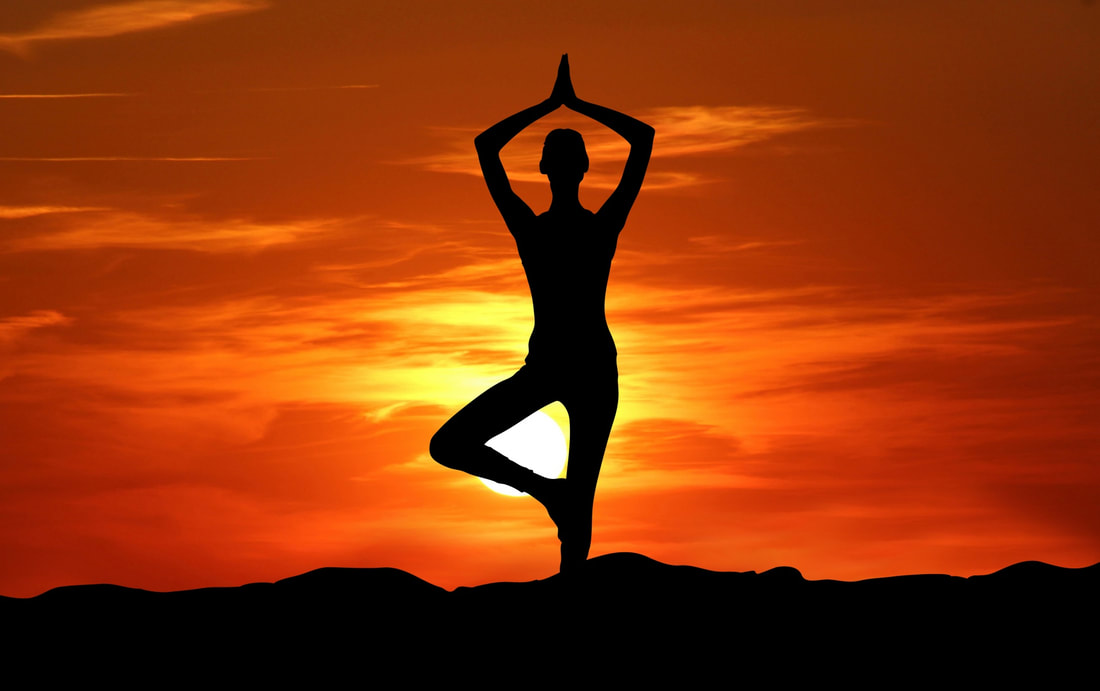 A few weeks ago my son and I drove past a billboard promoting a mind-body expo at our city’s convention center. “That’s my worst nightmare,” my son said. “All those people finding their centers at the same time.” I laughed out loud at my son’s words and at the image that came to my mind: hundreds of peace-and-self-love seekers rushing toward the convention center in bumper-to-bumper traffic, all trying to find a place to park for the day at a cost that won’t require a second mortgage. Once inside, they breathe in the smell of incense and the blend of body odors that can only be experienced in shoulder-to-shoulder crowds. They then push their way through the hordes while walking on tip-toes with their necks hyper-extended so that they can see the signs that will direct them to the must-see lectures or exhibits that will fulfill the promise of finding their missing centers. We live in a time when it seems everything is taken to extremes. I do believe in the power of mindfulness, and I do try to practice many of the techniques. I find it especially helpful when I am inside an MRI machine or in the dentist’s chair. Whenever I am afraid or anxious, I rely upon a mantra that always calms me: There is nowhere you can go that God is not already there. It reminds me that I am not alone and that help is within reach. But the mindfulness craze reminds me of some of the other movements that came before it. In the 1980s the term co-dependence emerged in the recovery movement. Too much focus on others and too much self-sacrifice can make us sick the movement told us. We are not responsible for the feelings of others the movement’s leaders preached. It is probably true that most of us have experienced situations or relationships in which we’ve tried too hard and become less of a person by trying to make someone else more of one--to no avail. But co-dependence morphed into a belief that caring for others was a sign of mental illness in the caregiver, and that caring about the feelings of another or putting someone else’s feelings before our own was sick. Every caregiving relationship, every act of self-sacrifice became suspect. Enter the current epidemic of loneliness and the disregard for the impact of our words and actions. The self-esteem movement emerged on the coattails of co-dependence. Self-esteem was to be the cure for all that ailed us. In mental health centers everywhere, every patient had the goal of improving self-esteem. If only each person had a good self-esteem we could bring an end to mental health problems. In the classroom, if every child could be given good self-esteem, why they could all be successful. Forty years later, I can see that, taken to its extreme, the self-esteem movement ushered in the current age of narcissism. What strikes me now about all of these movements is how often the word self is used to describe the movement or the process. It seems the more we focus on the self, the worse things get. An antidote comes to mind in another image from the past. It was also in the 1980s that I attended a conference for child development professionals. Dr. David Elkind, a child psychologist from Tufts University, was one of the speakers. In our small group workshop, Dr. Elkind addressed the issue of self-esteem. He said, “My parents didn’t care about my self-esteem. They wouldn’t have known to. But what was always clear to me was that everything they did was for me.” I recall how moved I was by Dr. Elkind’s words and by the fierce certainty in his eyes that he was loved. I am moved again at this very moment by the recollection. The self does not develop in isolation. When harmed, it does not heal in isolation. Belonging is essential to our human existence. It makes mastery, independence, and generosity possible. Things have a way of going left of center. On this Good Friday, I think of Dr. David Elkind’s words and the importance of this day on the Christian calendar. Whether you believe in Jesus or just see the Bible as an ancient book of fables, the moral of the story is this: You were born loved. Everything He did was for you. Live loved. And love one another.  When I was in third grade, I gave my teacher a Valentine’s Day gift. It was a heart-shaped box filled with assorted Russell Stover chocolates. I carried it to school so tenderly that an observer might have thought it was an actual beating heart about to be transplanted into the body of someone I loved. Truth be told, my own heart was torn that day. I was filled with pride and excitement at being able to give such a spectacular gift. But my heart was also overflowing with an amount of envy I could barely contain. I wrestled with the devil when it came time to part with the gift. It was like holding the winning lottery ticket and having to hand it to someone else. Oh, how I wanted that box of chocolates! A child would have never received such a Valentine back then. Gifts like that were reserved for adults only. That blessed grown-up might offer a lucky child the opportunity to pick “just one” from the box. The weight of such a choice was enormous. A child might pick a sweet, delicious chocolate-covered cherry, or find herself biting into a coffee cream as bitter as her disappointment. All that third-grade day, I wondered if I would EVER receive such a valentine. It had nothing to do with finding romance, love, or even chocolate. I also coveted that box! A heart-shaped box?! It defied gravity and all of the other laws of nature. While it was reported that good things came in small packages, I was pretty sure that the best things came in heart-shaped boxes trimmed with ruffled red ribbon. Obviously, the giving that day was more about me than about the teacher. At best I was showing off, at worst, I was brimming with envy. But as all children do, I was learning the life lessons that come so slowly, lessons about giving and receiving, about generosity and selfishness, about desire and self-control, about what lasts and what doesn’t. Forrest Gump said, ‘Life is like a box of chocolates; you never know what you’re going to get.” Later in life I would learn that sometimes we can reduce the risk and increase the satisfaction by locating the key that is printed somewhere on each box of chocolates. It is possible to make better choices when you are a grown-up and know how things work. Thankfully, giving is no longer about me and my own desires. My needs are met, and my heart is full, not with envy, but with a desire to win the lottery and pass it on. May your hearts be full today and all of your needs met. Choose wisely and remember there is a key on every box of chocolates. Happy Valentine’s Day! I love you all. 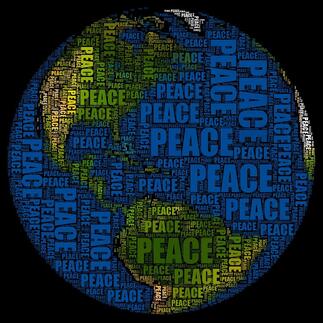 Man is born broken. He lives by mending. The grace of God is glue. Eugene O’Neill I pull into a parking lot where others wait in their cars for the office doors to open. Soon people begin hobbling into the waiting room. My son and I follow them inside. Their wardrobe accessories include slings, braces, and walkers. Winter coat sleeves hang loosely from shoulders. Slippers cover bound feet. Here, no explanations are needed for limitations that are so evident. Here, human brokenness is not just acceptable, it is the reason this place exists. The unique wardrobe accessories are badges of courage for a kind of brokenness legitimized by doctors and their prescription pads. People eye each other and joke about their state of dress, their appliances, and their injuries. I sit among this community of the broken as it gathers for mending. Some might call this church. Instead of St. Peter at the gate, there is a woman named Brenda at the front desk. Her affect is bright and she greets each patient by name and with enthusiasm. While Brenda is not a physical therapist, there can be no doubt that she is part of the therapy. Brenda recognizes and greets each patient and regular caregiver. She knows each patient’s name, schedule, health insurance, and balance due. She remembers the weather the last time one patient was seen, and she jokes with another patient about wearing shorts on a cold December morning. On the rare occasion when Brenda is not at her desk, the entire experience seems off. I experience the feelings of unreality known to the lost: Where am I? The high priests here are the physical therapists. They are generally young, fit, and sure of themselves. They are friendly and kind and greet each patient with that brand of humor that comes with familiarity. Patients seem to feel the need to urgently confess their sins the minute the therapists call their names: “I didn’t do all my exercises this week,” or “I re-injured myself chasing after a toddler.” There is no shame here, no reason to hide the truth. The therapists offer quick reassurance. In a couple of months, we will all say good bye to Brenda and these high priests as we each go our own way with bodies healed. All-in-all, it is a pleasant experience. I ponder the example as I wait for my son to finish his therapy. Rarely, in our daily lives can we be so open about our brokenness. And rarely, is there such a clear remedy or so much hope. There is no sling for a sagging self-esteem, no brace for a broken heart, no boot to correct the steps of a wayward child, and no assurance that the suffering will be temporary. We piece together our lives with threads that are not always sturdy. There seems to be no end to the threats that can break us. And yet so much of what hurts is hidden. What if we could be as honest about our brokenness and as open in our mending as these folks inside the physical therapy office? What if there was someone who could see to the place inside us where it hurts? Determine how much weight we can bear? Legitimize our suffering? Write a prescription for the cure? We find ourselves preparing for Christmas in a time when the whole world seems broken. We await the birth of a savior. The example in the story of Jesus is that of a man who was born and then broken. He mended and rose again. Along the way, he healed the sick, found the lost, and welcomed the outcasts. He did this largely by seeing them. May we celebrate this holiday season by seeing each other and by offering to others some of the glue and the grace that holds us together. And in the New Year may we follow this advice from Rabbi Lawrence Kushner: When you see something that is broken, fix it. When you find something that is lost, return it. When you see something that needs to be done, do it. In that way you will take care of your world and repair creation…realize the awesome power God has put into [your] hands.” Happy holidays my friends. Good tidings of comfort and joy! 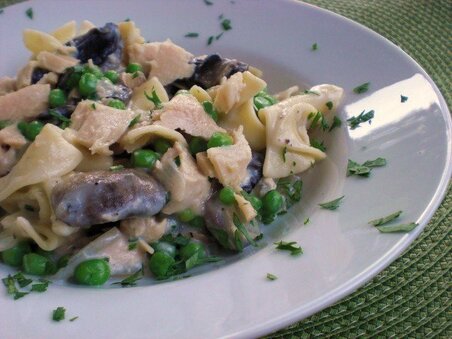 I turn the page on my calendar and discover that today is World Tuna Day. A sometimes lapsed Catholic, I wonder if this might be a new Holy Day of Obligation. For the non-Catholics out there, a Holy Day of Obligation is a day on which Catholics are expected to attend Mass and refrain from work and other activities that might interfere with their worship of God. I consider attending Mass, but that sounds like work to me, and I am too late anyway. I will add this latest lapse to my growing list of sins to be reported the next time I seek confession which is a Sacrament, another type of obligation, but not one that takes up an entire day, unless you are a child of Satan and have a lot to report. With my curiosity aroused, I turn to the Tree of Knowledge to fish for some answers. According to the information posted on www.un.org, in 2016 the United Nations passed a resolution making May 2nd World Tuna Day in order to spread the word about the dangerous situation faced by this important fish. Apparently, the future of tuna is threatened by overwhelming demand and unsustainable fishing practices. Overfishing has endangered the species and the delicate ecosystem of the ocean’s food chain. Overfishing also threatens to impact the livelihoods of people all over the world, and the United Nations is taking measures to safeguard the value of tuna stocks—the Wall Street version, not the stack of cans in a good Catholic’s pantry. Sailing around the internet, I learn that there are seven commercial species of tuna fished from four different oceans. All my life, I thought Charlie the Tuna was the only one. As of 2018, the tuna industry was worth about forty billion dollars, and that does not include the tuna fishing gear industry. I am more than a little surprised that with all that is at stake the United Nations waited until after Lent to bring this up. Let’s face it, observant Catholics are complicit in this developing tragedy. Before Charlie the Tuna, Jesus was a pretty well-known spokesperson. Jesus was really into fishing. Some of his apostles were actual fishermen before Jesus made them fishers of men. Jesus was also known for his famous loaves and fishes routine. I am pretty sure that was when the tuna fish sandwich became popular on the Catholic menu. By the 1950s, the decade in which I was born, tuna noodle casserole was a mainstay of the American Catholic’s diet on Friday nights and all throughout the season of Lent. It was cheap to make, the ingredients were easy to find and non-perishable to boot. The meal was easy to prepare and provided leftovers. It was also popular at church potlucks and a nice gesture of comfort in times of tragedy. I think we all have something to confess here. But the Church is good at granting dispensations-- an act for which a lawful superior grants relaxation from an existing law in a particular case. You might need that if you find yourself craving tuna noodle casserole given the plight of the tuna. You might want to shoot for Eat What You Want Day which is coming up on May 11th. Eat What You Want Day is a day to eat whatever you want without fretting over fats or fishing. A day without guilt. I’m pretty sure that can’t be a Catholic Church holiday. 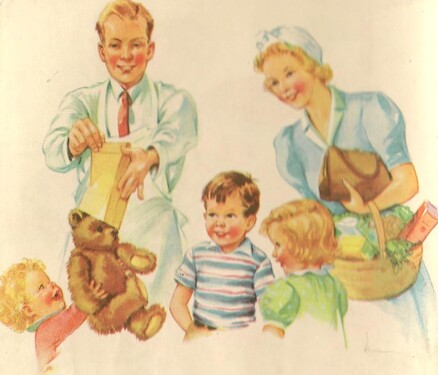 (In memory of Allison St. Claire who loved books, her library card, and bringing our words into print.) Fueled by SPAM and saltine crackers, we made our way from California to Ohio in the back of a Rambler station wagon. Our father had orders to deploy to Pakistan. Amidst the upheaval, I deployed to first grade. While my father had many years of military experience and was ready to go, I did not have the benefit of basic training—no preschool, no kindergarten. A shy and quiet child, I was not just reluctant, I was terrified, but there was no choice. And so, like my father, I donned the uniform. He marched off to Pakistan, and I marched off to Catholic grade school. Dressed in her traditional 1960s nun’s habit, the teacher was every bit as intimidating as a drill sergeant. Following orders, I sat up straight, eyes forward. We turned our attention to a large flip chart that seemed to be the height of a first-grader. Sister Eulalia turned back the cover page, and with her long pointer, she tapped the word at the bottom of the page: “Look,” she read aloud. We all repeated, “Look.” And so it began. I was officially a reader. Never again have I felt so powerful and proud. I had no idea that Dick and Jane and the Catholic school version John and Jean would soon be on their way out along with Spot and Puff. I had no reason to be aware of the debate going on in academia about methods for teaching reading: site reading versus phonics. I was too young and my world too small to be aware of the biases and stereotypes depicted on the pages filled with white faces and white picket fences. I, along with 85 million other American children, learned to read with Dick and Jane and John and Jean, Sally and Judy, Spot and Puff. Unaware of the catalog of faults, I enjoyed my school books with the watercolor art, sweet stories, and urgent action words: Look! See! Run! Come! Thomas Jefferson wrote, “I cannot live in a world without books.” And since that first day when I was ordered to look, I cannot stop looking at books. A lifelong student of human behavior, I have maintained a preschooler’s incessant need to know why. Why do people do what they do? Why do I do what I do? Inside a book I can mingle with unsavory characters and walk away with my reputation unscathed. I have the privacy to get to know myself. Without an audience and without shame, I can get down into the dark corners of my own dusty layers. I can sort out what I know, what I think, and what I might do next. Books allow me to see myself, but they don’t demand that I mount a defense. Though books now come in many forms, I still love print--the firm cover that cracks when opened for the first time. I love the smooth pages and the dog-eared ones that remind me to look again. I am awed by the power of words and the importance of order in giving meaning to language. The words liberty and death can be “Death to liberty,” or “Give me liberty or give me death.” I melt into the pictures painted by the brushes of gifted writers. I swear I have tramped through the marsh Where the Crawdads Sing. I have traveled through time with Kristin Hannah and felt the grit in my eyes blown there by the ferocious winds of the dust bowl in The Four Winds. I have wept for the curse that was slavery as I rode The Underground Railroad with Colson Whitehead. I have learned history and geography in meaningful and memorable ways not possible in the classroom. I also love the companionship that books provide. Every character becomes someone I know, a wise old friend. There are authors I trust. They give me confidence and something to look forward to. I turn to them again and again. William Zinsser wrote that writing is a public trust and that truth is a gift. He speaks of clear thinkers with a passion for their subjects and notes that how we write and how we talk is how we define ourselves. Yes! “We can write to affirm and to celebrate or we can write to debunk and destroy…nobody can make us write what we don’t want to write. We get to keep intention.” Character is revealed through writing. In this crowded world, it can be hard to find your people. I find mine in books. And I find solutions. I am better prepared for the future having walked the unfamiliar path upon a page with someone who has been there, with someone who knows. And when I am weary, and fresh out of dreams, I find something new that restores my spirit. Without books, my mind is homeless. It is Read Across America Day! Thank you, Sister Eulalia, for teaching me to read. And thank you Dick and Jane for inviting me to Look! |
AuthorLilli-ann Buffin Archives
July 2024
Categories
All
|
 RSS Feed
RSS Feed